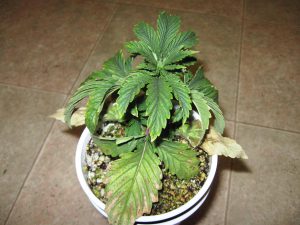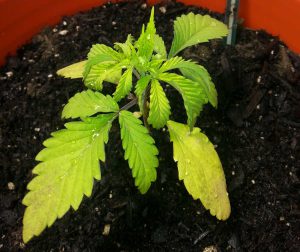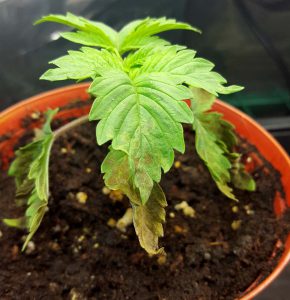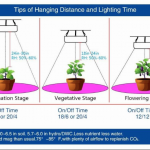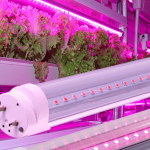One of the common issues that many new and even veteran cannabis growers face is overwatering their plants. This results in root rot that can be quite devastating and have dire consequences on cannabis plants. To solve any accidental overwatering, growers need to act quickly. Most people believe that watering weed plants is a simple thing; however, it must be done with care to prevent damage.
Overwatering cannabis plants that have not had their growth spurt can be a major problem. This is because water builds up at the bottom of the growing pot causing rotting of the roots. As a result, small plants may die off or they may grow extremely short and give a lower yield owing to their size. Furthermore, for indoor plants, the smaller plant may be shaded by other plants and die off entirely.
Overwatering mainly affects cannabis plants that are grown in substrate-based media or soil. In most cases, overwatering does not occur from excessive watering but from frequent watering of your marijuana plants. This article will delve into overwatering of pot plants and how marijuana growers can solve this problem.
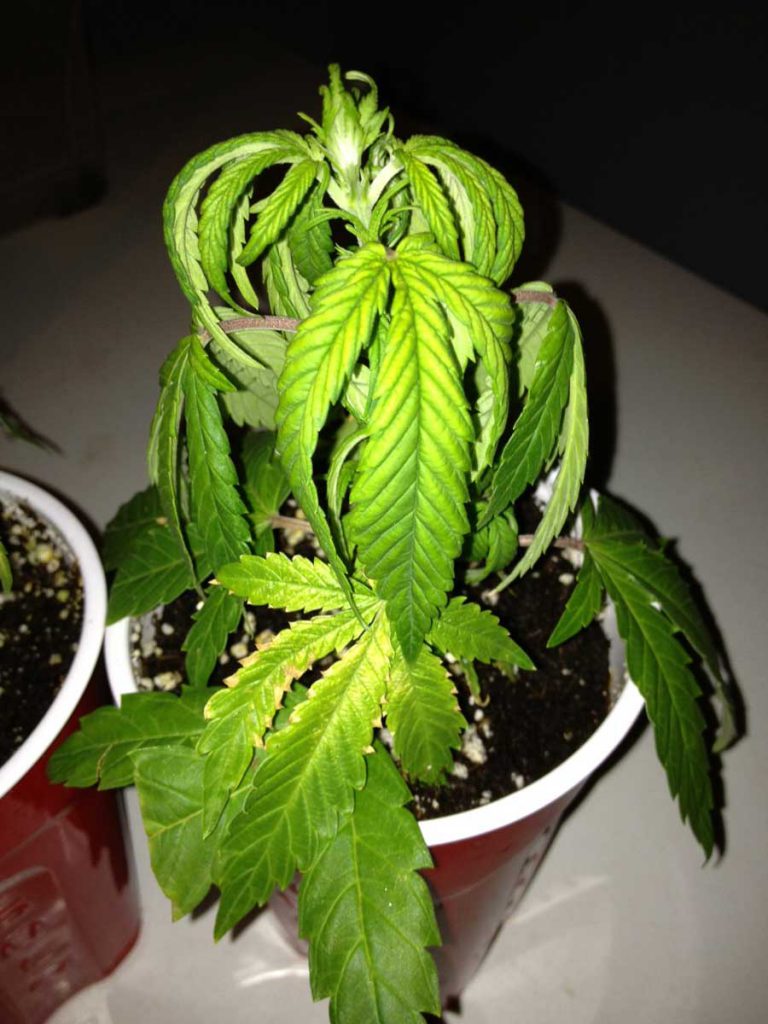
Common Causes of Cannabis Overwatering
- Overwatering may be caused by many factors and not just the addition of water to your cannabis plants. Some of these factors include:
- Watering cannabis too often
- Watering your plants too much at one time
- Grow medium that has poor draining, for instance, it is muddy, thick, or dense
- Lack of drainage holes that release runoff water out through the bottom of the container
- Poor transpiration. The plants may not efficiently evaporate water through their leaves. This prevents them from sucking up the water from their roots like a straw resulting in a slow uptake of water.
- Allowing plants to sit for long in runoff water
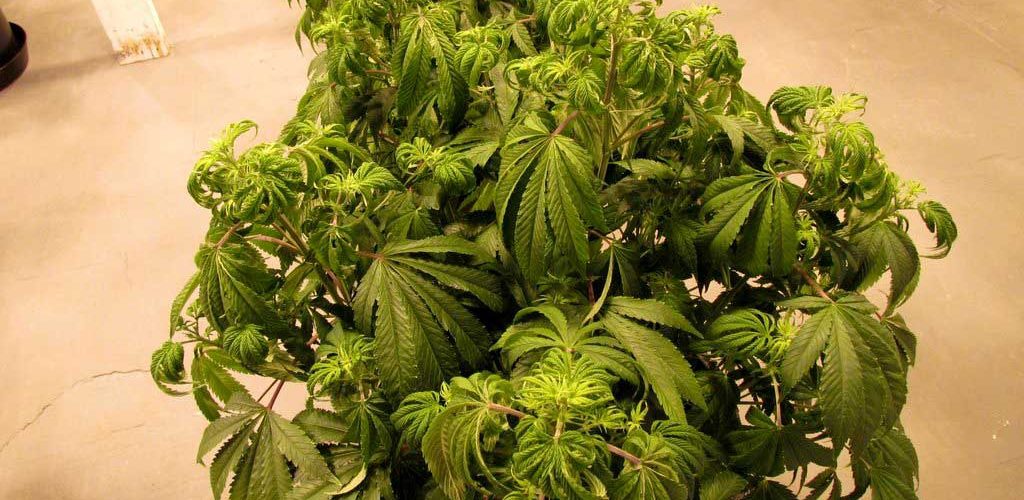
Symptoms of Overwatering of Cannabis Plants
To spot overwatering issues, growers need to pay close attention to their marijuana plants. One of the major factors is checking how your plants act after they have been watered. If they start drooping, then it can signify root obstruction. Discoloration of the plant leaves, for instance, yellowing of leaves is a clear sign of persistent overwatering. Overwatering can cause issues like a decrease in yields and can be fatal to the plant when the problem is not addressed early.
Overwatering may cause a healthy-looking plant to look unhealthy or sickly. The roots are important parts of marijuana plants as they help to hold the plants down, and absorb water, nutrients, and oxygen during every stage of growth. Excessive watering will actually drown the roots resulting in nutrient blockages and cause issues with the plants. Some of the symptoms that you should look out for include:
- Leaves that fade or show signs of nutrient deficiencies
- Leaves that are waning or appear droopy after watering
- Both new growth and old leaves are curled or cupped
- Brown patches on serrated edges of cannabis leaves
- Soil pH swings or imbalances
- The cannabis plant lacks vigor
To avoid overwatering of cannabis plants, growers need to start using a small quantity of water and increase the quantity as the plant grows. This will help your plants to develop longer roots faster and they will absorb more nutrients and water to help them grow healthy and strong.
Read next: Cannabis Seedling Problems
Effective Ways of Fixing Over Watering Of Cannabis Plants
-
Enzymes
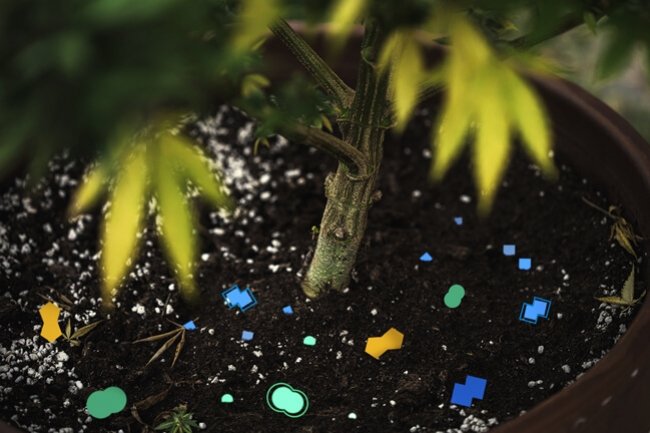
When your cannabis plants have grown big enough, overwatering should not be a big issue provided that it does not happen daily. In case you over watered your plants, you should wait for several days to ensure it is fully dry. You can treat overwatering using enzymes to ensure the root systems of your marijuana plants grow study and strong and recover from damages caused by excess water.
Enzymes work as catalysts and will support different chemical processes in your cannabis plants enabling them to grow faster. With marijuana plants, enzymes can help in eliminating dead roots faster. They turn them into sugars that are then absorbed by the living roots and also create space for new and healthy roots.
[amazon box=”B003Y7F5K6″ grid=1]-
Substrates
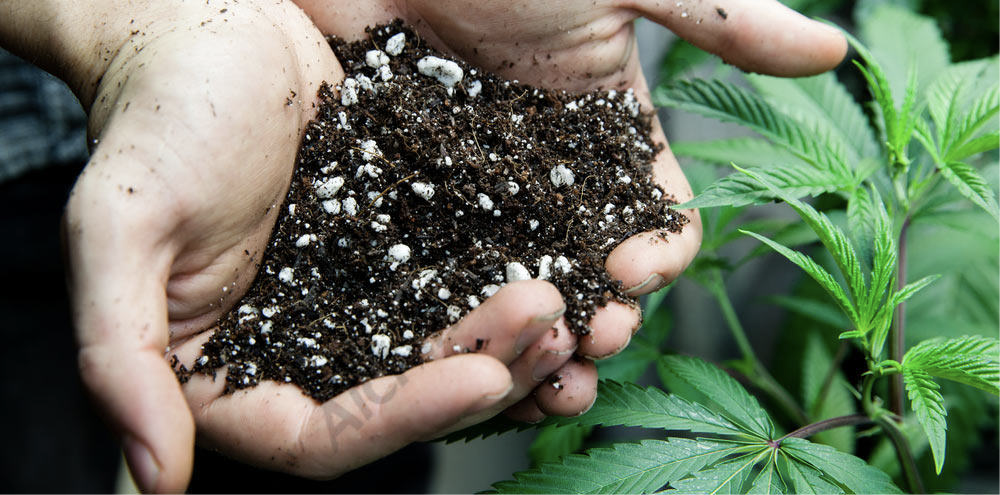
Picking the right substrate for your cannabis plants is important. Your pot plant will live and thrive in the soil that you select for it and choosing correctly is essential. There are a variety of substrates to choose from and each has its own qualities and will treat water differently. To avoid overwatering problems on your cannabis plants, you should use substrates that do not hold water for a long time. You can opt for substrates that contain natural peat combinations or perlite as they are perfect for marijuana plants. They will allow your plants to adequately absorb water and nutrients needed to grow successfully.
If overwatering is fixed on time, you will notice a significant change in your yield. However, keep in mind that fixing the effects of overwatering can be quite stressful and time-consuming and your plants will also lose several days of growth. If overwatering occurs regularly, it will affect the quality of your final marijuana yield. This is because your plants may not regrow properly and will end up having rot or fungi issues.
After solving the overwatering problem, cannabis growers can continue with normal feeding and watering schedules. Be cautious with your watering schedules to ensure that your plants are not overwatered again. If you opt for enzymes, you can rest assured that your cannabis’ roots will be healthier and will not rot.
When watering your plants, you must ensure that the roots are not soaked and stay in a puddle of water. You need to pour the water and allow it to seep down to the roots rather than just pouring all the water in the growing container at once.
[amazon bestseller=”best soil for grow marijuana”]How to Water your Cannabis Plants Efficiently
Cannabis growers must know that the quantity of water that your pot plants absorb will vary based on different reasons. These include the temperature, relative humidity, when the plant was watered, root health, and many more. If your cannabis plant absorbed a liter of water one week ago, it may only require about half a liter the following week. You need to be cautious when watering your plant and carefully examine the plant and the soil.
Watering of marijuana plants should be done in stages. You should allow the water to be soaked up by the growth media until it starts coming out from the bottom of the container. Adding more water at this point will definitely be too much for your plants.
Always remember that watering cannabis plants is not an exact science and you are bound to make mistakes. You should closely monitor the whole process and learn from experience. Cannabis growers should also take care of their smaller plants because overwatering them will stop them from growing completely. Always water your plants carefully and calmly.
Here are a few watering tips that you can use:
- Pay close attention to your cannabis plants’ nutrient and water intake to have an idea of how often to water or feed them.
- Before watering, ensure that the top of the growing medium is dry to about one inch deep.
- You can lift up the pot to get an idea of how saturated it may be before watering.
- Water your plants till you notice about 15 to 20% runoff as this helps in flushing the soil of its stagnant air and byproducts, rejuvenating the soil, and removing any unavailable or unused nutrients.
If you notice that the plant medium stays wet for a long time, for example, over 5 days or more, then it means that your cannabis plants need better drainage. This may also happen if you grow tiny pot plants in a big container. If the water does not drain freely from the media containers manually, you can add more holes close to the lowest points to enhance drainage.
Read next: How To Make Your Weed Stronger
Final Thoughts
Overwatering when cultivating weed plants happens more often than many people think. Keeping a detailed written schedule for water and nutrient feeding for your marijuana plants is crucial. This will help you keep track of your plants’ watering schedules and you can adjust the levels as you go. Additionally, growers must always check whether their cannabis plants require water instead of assuming that they do.

